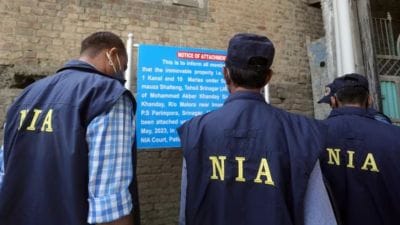Schroeder on way to Beijing
BERLIN, MAY 11: German Chancellor Gerhard Schroeder is travelling to Beijing today with a tough diplomatic task in the wake of NATO's bom...

BERLIN, MAY 11: German Chancellor Gerhard Schroeder is travelling to Beijing today with a tough diplomatic task in the wake of NATO8217;s bombing of China8217;s Embassy in Belgrade.
China seems unlikely to accept any plan for Yugoslavia that will not start by ceasing NATO bombardments, which is precisely the item missing in the agreement reached last Friday by the world8217;s seven most industrialised countries and Russia G-8.
The chancellor8217;s visit has been downgraded at China8217;s request and reduced from four days to one, German officials announced yesterday.
A group of industrialists and businessmen who were to have accompanied Schroeder will now stay at home. 8220;The Chinese side made it clear that under the circumstances, it would not be appropriate for a large business delegation to travel,8221; Schroeder8217;s chief foreign policy adviser Michael Steiner said yesterday.
At the same time China has cancelled trade talks with the European Union that were scheduled later this week in Beijing 8211; a sombre sign that thismay not be the right time for the west to be asking China for favours.
This weekend, frenetic behind-the-scenes diplomatic activity in Bonn concentrated on keeping the peace initiative alive. Germany and Russia continued to push for a diplomatic settlement despite the bombing of the Chinese embassy.
German diplomats were saying with relief yesterday that a breakdown in talks between the west and Russia following the bombing of the Chinese embassy was averted and both sides agreed to continue to work towards a diplomatic solution.
8220;Attempts to find a political solution must and will continue with a high level of dynamism8221;, Schroeder said after talks with Chernomyrdin. He said the G-8 agreement would continue to be the basis of talks.
The central issue in the talks was how to reign in the Yugoslav government Milosevic and placate China. But more important in the immediate term was to ensure that Russia did not unravel the G-8 agreement in anger at the bombing.
- 01
- 02
- 03
- 04
- 05































